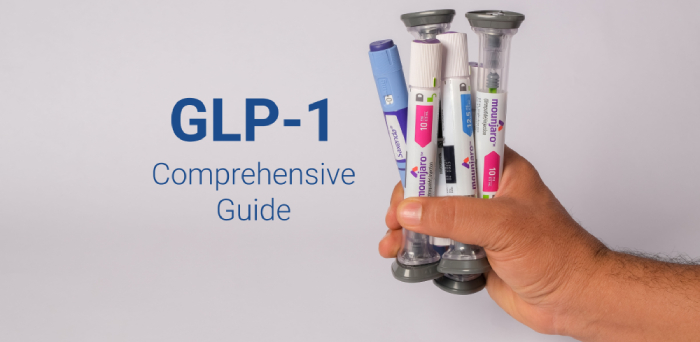Understanding the Risks of Weight Loss Jabs in Surgical Settings
The rise of weight loss jabs like Ozempic, Wegovy, and Mounjaro has been nothing short of revolutionary in the fight against obesity. These drugs, classified as GLP-1 and dual GIP/GLP-1 receptor agonists, have been celebrated for their ability to help patients shed significant amounts of weight—up to 20% of their body weight in just a few months. However, recent warnings from drug safety chiefs have cast a shadow over their otherwise glowing reputation. The Medicines and Healthcare Products Regulatory Agency (MHRA) in the UK has issued a stark warning: these weight loss jabs may increase the risk of choking during surgery, a potentially fatal complication.
How Weight Loss Jabs Work: A Double-Edged Sword
The mechanism behind these weight loss jabs is both ingenious and, as it turns out, potentially problematic. These drugs work by slowing down the digestive process, which helps patients feel fuller for longer and reduces their overall food intake. This delayed gastric emptying is key to their effectiveness in promoting weight loss. However, this same mechanism can lead to a dangerous situation during surgery.
When a patient undergoes general anesthesia or deep sedation, standard fasting procedures are employed to ensure the stomach is empty. This is crucial because any material left in the stomach can regurgitate and enter the airway, leading to choking or aspiration pneumonia—a severe lung infection caused by inhaling food, liquids, or saliva. The MHRA has noted that the slowed digestion caused by these drugs means that even after standard fasting, patients may still have residual gastric content, increasing the risk of these complications.
The MHRA’s Response: New Warnings and Guidelines
In response to these concerns, the MHRA has mandated that new warnings be added to the patient information leaflets for Ozempic, Wegovy, and Mounjaro. These warnings will highlight the increased risk of aspiration during surgery and advise patients to inform their healthcare providers if they are taking these medications. Additionally, the MHRA has instructed medical professionals to specifically ask patients about their use of these drugs during pre-surgery risk assessments. This is particularly important because private prescriptions for these medications may not appear in a patient’s medical history, making direct questioning essential.
The MHRA’s decision was influenced by a small number of reported cases in the UK where patients on these medications experienced choking during surgery. There was also one reported case of aspiration pneumonia. These incidents underscore the importance of heightened awareness and precautionary measures.
The American Study: A Broader Perspective
The MHRA’s warning is not an isolated concern. It follows an American study that found patients taking semaglutide (the active ingredient in Ozempic and Wegovy) had a 33% higher chance of suffering aspiration pneumonia during an endoscopy—a procedure where a camera is inserted via the mouth to examine the upper digestive tract. This study adds weight to the MHRA’s concerns and suggests that the risks associated with these drugs may be more widespread than initially thought.
The Broader Implications: Balancing Benefits and Risks
While the MHRA’s warning is significant, it’s important to contextualize these risks within the broader benefits of these medications. For many patients, these drugs represent a lifeline in their battle against obesity, a condition that carries its own set of severe health risks, including heart disease, diabetes, and certain cancers. The potential for significant weight loss can lead to improved quality of life and reduced risk of obesity-related complications.
However, the risks associated with these drugs cannot be ignored. Beyond the surgical risks, there have been reports of other side effects, including constipation, fatigue, stomach pain, headaches, and dizziness. More bizarre symptoms, such as hair loss, have also been reported. Additionally, there are concerns about the potential for increased risk of thyroid cancer, though this remains a topic of ongoing research.
The Ethical Dilemma: Misuse and Overprescription
Another layer of complexity is the ethical dilemma surrounding the misuse of these drugs. Reports have emerged of slim individuals falsely claiming to be overweight to obtain these medications, leading to hospitalizations and life-threatening complications. This misuse not only endangers the individuals involved but also places additional strain on healthcare systems.
Under NHS guidelines, these drugs are strictly prescribed to patients with a BMI of over 35 and at least one weight-related health problem, or those with a BMI of 30 to 34.9 who meet specific criteria for referral to a specialist weight management service. However, the ease of obtaining these drugs through online pharmacies has led to a rise in misuse, highlighting the need for stricter controls and better patient education.
Commentary by SuppBase Columnist Alice Winters

The MHRA’s recent warning about the increased risk of choking during surgery for patients on weight loss jabs like Ozempic, Wegovy, and Mounjaro is a sobering reminder that even the most promising medical advancements come with potential risks. While these drugs have been hailed as a breakthrough in the fight against obesity, their mechanism of action—slowing gastric emptying—poses a significant risk during surgical procedures. This risk is not trivial; aspiration pneumonia and choking are life-threatening complications that demand serious attention.
The MHRA’s decision to add new warnings to patient information leaflets and to instruct medical professionals to specifically inquire about the use of these drugs before surgery is a necessary step. However, it also raises questions about the broader implications of these medications. Are we fully aware of all the potential risks associated with these drugs? And are we doing enough to ensure that they are used appropriately and safely?
The American study linking semaglutide to a higher risk of aspiration pneumonia during endoscopy adds another layer of concern. It suggests that the risks may extend beyond surgical settings and into other medical procedures. This is a critical area for further research, as it could have significant implications for how these drugs are prescribed and managed.
Moreover, the ethical dilemma surrounding the misuse of these drugs cannot be overlooked. The rise in hospitalizations due to misuse highlights the need for stricter controls and better patient education. It’s crucial that healthcare providers are vigilant in ensuring that these medications are prescribed only to those who truly need them and that patients are fully informed about the risks and benefits.
In conclusion, while weight loss jabs like Ozempic, Wegovy, and Mounjaro offer significant benefits in the fight against obesity, they are not without risks. The MHRA’s warning is a timely reminder that we must approach these medications with caution, ensuring that their use is carefully managed and that patients are fully informed about the potential risks. As we continue to explore the potential of these drugs, it’s essential that we balance their benefits with a thorough understanding of their risks, ensuring that patient safety remains the top priority.



